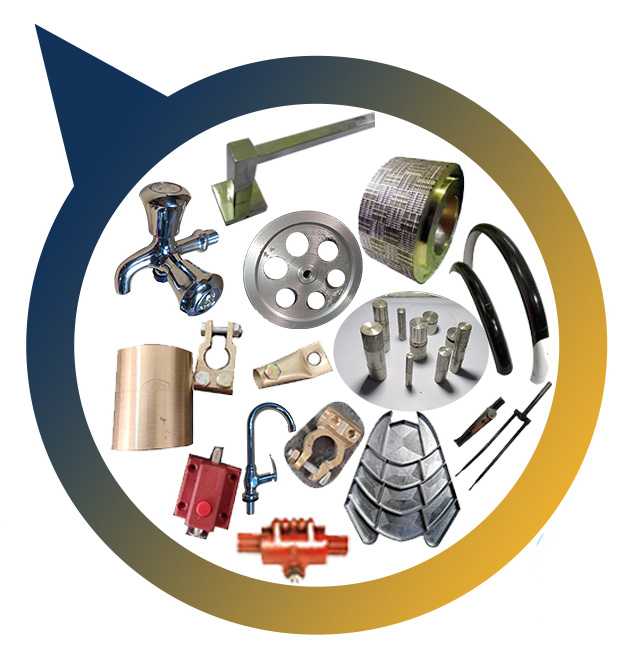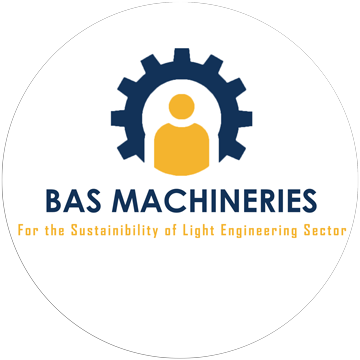
Sustainable Enterprise Project (SEP)
Sub-Project: Sustainably developing industrial spare parts and equipment manufacturing workshops by adopting environmentally sustainable practice.
Project Background:
Enhancing environmental sustainability and climate resilience are becoming increasingly important for sustaining Bangladesh’s economic progress. Bangladesh ranked 173 out of 180 countries on Yale’s 2016 Environmental Performance Index. Globally, Bangladesh ranks among the countries with the economy most at risk due to the impacts of climate change. The rapid growth of manufacturing, dominated by micro, small and medium enterprises (MSMEs), has led to a massive increase in natural resource use and degradation and to growing air, soil and water pollution. Reducing negative environmental externalities has been identified as a priority area for Bangladesh to continue progress toward reducing poverty and inequality. Embarking on a greener growth pathway would provide major benefits for Bangladesh in terms of increased productivity and innovation, access to new markets, generation of public revenue, and reduction of vulnerability to shocks.

In the microenterprise sector, attention to environmental sustainability and climate resilience is limited due to a mix of capacity, market accessibility, knowledge and financial barriers. While the statistics show a high contribution to GDP from microenterprises, there is little evidence to show that microenterprises are growing in a sustainable way. The performance of micro, small and medium enterprises (MSMEs) is limited in terms of revenue earnings, machinery use, capital-labor ratio, and growth of value added, except labor productivity in some instances. Negative externalities, such as pollution, health impacts, or loss of productivity, are typically not reflected in costs, thereby reducing the incentive for microenterprises to shift to more sustainable goods and services, or collectively invest in better environmental technologies and infrastructure. The Sustainable Enterprise Project (SEP) support microenterprises in agribusiness and manufacturing clusters with a focus on areas that are environmentally stressed and/or vulnerable to climate change and natural disasters. The project aims to support microenterprises through environment friendly investments (energy, water and resource efficiency) in the agribusiness and manufacturing sectors to promote environmentally sustainable technologies and practices among microenterprises in environmentally vulnerable areas, induce changes in the micro-lending ecosystem, and support the adoption of basic operational safety norms in project-supported enterprises. The project will consist of three components: (a) enhancing services and enabling systems, (b) strengthened access to finance for commercially viable environmentally friendly and resilient microenterprises, and (c) project management, knowledge management, and monitoring and evaluation. The project will prioritize (i) a selected number of polluting microenterprise business clusters, that can reduce emission and increase resource efficiency and (ii) the expansion of innovative economic activities that contribute to environmentally friendly clean and green business and climate resilience. The role of PKSF in promoting environmental issues in microenterprises is crucial. PKSFs Microenterprise Program extends financial services to its Partner Organizations (PO) for undertaking Microenterprises. PKSF has been facilitating women empowerment in microenterprise sector by provisioning opportunities of loan financing for women entrepreneurs. Currently, more than 77% of the total ME loan borrowers of PKSF are women. With the help of the Government, PKSF is implementing the ‘Sustainable Enterprise Project (SEP)’ financed by World Bank for the microenterprise sector to improve its environmental sustainability. The objective of SEP is to increase the adoption of environmentally sustainable practices by targeted microenterprises. SEP has selected 30 lead districts as the project working area to demonstrate the project impact on different sub-sectors. The project prioritizes a selected number of polluting microenterprise business clusters and supports the expansion of innovative economic activities conducive to a more sustainable environment.

To facilitate the support to the Microenterprise (ME) clusters and the MEs through the selected POs, the project is following a stepwise process beginning with submission of Sub-Project Concept Note (SPCN). The POs would be encouraged to collect information from the clusters they are familiar with and submit cluster level Sub-Project Concept Note (SPCN). After acceptance of the SPCN, the selected POs receive financing to support the environment friendly activities at the PO level and are requested to share the Detail Sub-Project Proposal (DSPP). The objective of the DSPP is therefore to assess the detail plan and needs of the cluster and cluster members to implement the proposed common activities of the sub-project.
Sub-project objectives:
- Boosting production efficiency and capacities of MEs.
- Increase Adoption of Environmentally Sustainable Practices.
- Improving marketability and profitability through product quality control.
- Reduce health hazard of the workers.
Main Activities:
- Establishment of common service center (CNC VMC, Milling Machine, Heat treatment, testing facilities) through potential MEs
- Establish hygienic toilet facilities
- Establish and demonstration of Model workshop
- Demonstration of solid waste (metal chips/Scrap) recycling
- Training, follow up meeting & workshop on sustainable environmental practices
- ISO certification and Testing
- Environment Club
- Workshop on Business operation & legal compliance
- Enhancing Bargaining capacity through workshop
- Promotional Activities




